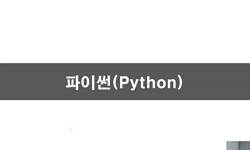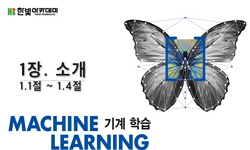최근 정보화 사회에서는 단순 암기보다는 문제 해결 능력과 종합적인 사고력을 바탕으로 창의적인 생각을 할 수 있는 인재를 요구한다. 이에 따라 교육과정도 학생들의 종합적인 사고력을 ...
http://chineseinput.net/에서 pinyin(병음)방식으로 중국어를 변환할 수 있습니다.
변환된 중국어를 복사하여 사용하시면 됩니다.
- 中文 을 입력하시려면 zhongwen을 입력하시고 space를누르시면됩니다.
- 北京 을 입력하시려면 beijing을 입력하시고 space를 누르시면 됩니다.

기계학습 분류기의 예측확률과 만장일치를 이용한 한국어 서답형 문항 자동채점 시스템 = Automated Scoring System for Korean Short-Answer Questions Using Predictability and Unanimity
한글로보기https://www.riss.kr/link?id=A102412485
- 저자
- 발행기관
- 학술지명
- 권호사항
-
발행연도
2016
-
작성언어
Korean
- 주제어
-
등재정보
KCI등재
-
자료형태
학술저널
-
수록면
527-534(8쪽)
-
KCI 피인용횟수
1
- DOI식별코드
- 제공처
- 소장기관
-
0
상세조회 -
0
다운로드
부가정보
국문 초록 (Abstract)
최근 정보화 사회에서는 단순 암기보다는 문제 해결 능력과 종합적인 사고력을 바탕으로 창의적인 생각을 할 수 있는 인재를 요구한다. 이에 따라 교육과정도 학생들의 종합적인 사고력을 판단할 수 있는 서답형 문항을 늘리는 방향으로 변하고 있다. 그러나 서답형 문항의 경우 채점자의 주관에 의존하여 채점이 진행되기 때문에, 채점 결과의 일관성을 확보하기 어렵다는 단점이 있다. 이런 점을 해결하기 위해 해외에서는 기계학습을 이용한 자동채점 시스템을 채점 도구로 사용하고 있다. 한국어는 영어와 언어학적으로 다른 분류에 속하므로 영어권에서 사용하는 자동채점 시스템을 한국어에 그대로 적용할 수 없다. 따라서 한국어 체계에 맞는 자동채점 시스템의 개발이 필요하다. 본 논문에서는 기계학습 분류기의 예측확률과 만장일치 방법을 사용한 한국어 서답형 문항 자동채점 시스템을 소개하고, 자동채점 시스템을 이용한 채점 결과와 교과전문가의 채점 결과를 비교하여 자동채점 시스템의 실용성을 검증한다. 본 논문의 실험을 위해 2014년 국가수준 학업성취도 평가의 국어, 사회, 과학 교과의 서답형 문항을 사용했다. 평가 척도로 피어슨 상관계수와 카파계수를 사용했다. 채점자가 개입했을 때와 개입하지 않았을 때의 상관계수 모두 0.7 이상으로 강한 양의 상관관계를 보였다. 이는 자동채점 시스템이 교과 전문가가 채점한 결과와 유사한 방향으로 답안에 점수를 부여한 것이므로 자동채점 시스템을 채점 보조도구로서 충분히 사용할 수 있을 것이다.
다국어 초록 (Multilingual Abstract)
The emergent information society requires the talent for creative thinking based on problem-solving skills and comprehensive thinking rather than simple memorization. Therefore, the Korean curriculum has also changed into the direction of the creative...
The emergent information society requires the talent for creative thinking based on problem-solving skills and comprehensive thinking rather than simple memorization. Therefore, the Korean curriculum has also changed into the direction of the creative thinking through increasing short-answer questions that can determine the overall thinking of the students. However, their scoring results are a little bit inconsistency because scoring short-answer questions depends on the subjective scoring of human raters. In order to alleviate this point, an automated scoring system using a machine learning has been used as a scoring tool in overseas. Linguistically, Korean and English is totally different in the structure of the sentences. Thus, the automated scoring system used in English cannot be applied to Korean. In this paper, we introduce an automated scoring system for Korean short-answer questions using predictability and unanimity. We also verify the practicality of the automatic scoring system through the correlation coefficient between the results of the automated scoring system and those of human raters. In the experiment of this paper, the proposed system is evaluated for constructed-response items of Korean language, social studies, and science in the National Assessment of Educational Achievement. The analysis was used Pearson correlation coefficients and Kappa coefficient. Results of the experiment had showed a strong positive correlation with all the correlation coefficients at 0.7 or higher. Thus, the scoring results of the proposed scoring system are similar to those of human raters. Therefore, the automated scoring system should be found to be useful as a scoring tool.
참고문헌 (Reference)
1 강원석, "질의문 유형 분석을 통한 서답형 자동 채점 시스템" 한국콘텐츠학회 11 (11): 13-21, 2011
2 천민아, "준지도학습 방법을 이용한 한국어 서답형 문항 반자동 채점" 한국인지과학회 26 (26): 147-165, 2015
3 조우진, "의미커널과 한글 워드넷에 기반한 지능형 채점 시스템" 한국정보처리학회 12 (12): 539-546, 2005
4 박희정, "유의어 사전을 이용한 주관식 문제 채점 시스템 설계 및 구현" 한국컴퓨터교육학회 6 (6): 207-216, 2003
5 진경애, "영작문 자동 채점 시스템 개발 연구" 한국영어어문교육학회 13 (13): 235-259, 2007
6 송미영, "대규모 평가 서답형 문항 채점을 위한 문장 수준 자동채점 프로그램의 정확성 분석" 한국교육과정평가원 19 (19): 255-274, 2016
7 Ministry of Education, "The Plan for Improving Education Management for Secondary Schools"
8 Ministry of Education, "The Master Plan for Creativity-Character Education"
9 Ministry of Education, "The Future Korea to Open Using Creative Talent and Advanced Science and Technology, 2011 Business Report" 2010
10 N-H. Noh, "The Development and Evaluation for Automatic Scoring Programs in Korean Large-Scale Assessments" Korea Institute of Curriculum & Evaluation 2014
1 강원석, "질의문 유형 분석을 통한 서답형 자동 채점 시스템" 한국콘텐츠학회 11 (11): 13-21, 2011
2 천민아, "준지도학습 방법을 이용한 한국어 서답형 문항 반자동 채점" 한국인지과학회 26 (26): 147-165, 2015
3 조우진, "의미커널과 한글 워드넷에 기반한 지능형 채점 시스템" 한국정보처리학회 12 (12): 539-546, 2005
4 박희정, "유의어 사전을 이용한 주관식 문제 채점 시스템 설계 및 구현" 한국컴퓨터교육학회 6 (6): 207-216, 2003
5 진경애, "영작문 자동 채점 시스템 개발 연구" 한국영어어문교육학회 13 (13): 235-259, 2007
6 송미영, "대규모 평가 서답형 문항 채점을 위한 문장 수준 자동채점 프로그램의 정확성 분석" 한국교육과정평가원 19 (19): 255-274, 2016
7 Ministry of Education, "The Plan for Improving Education Management for Secondary Schools"
8 Ministry of Education, "The Master Plan for Creativity-Character Education"
9 Ministry of Education, "The Future Korea to Open Using Creative Talent and Advanced Science and Technology, 2011 Business Report" 2010
10 N-H. Noh, "The Development and Evaluation for Automatic Scoring Programs in Korean Large-Scale Assessments" Korea Institute of Curriculum & Evaluation 2014
11 Korea Institute for Curriculum & Evaluation, "Test Paper and Answers in 2014 National Assessment of Educational Achievement of Korea"
12 J. L. Fleiss, "Statical methods for rates and propositions 3rd Edition" John Wiley & Sons 598-626, 2003
13 A. Sogaard, "Semi-Supervised Learning and Domain Adaptation in Natural Language Processing" Morgan &Claypool Publishers 2013
14 "Romoku"
15 E-H. Noh, "Refinements and Application of Automatic Scoring Programs for Korean Large-scale Assessments" Korea Institute of Curriculum & Evaluation 2015
16 M.-A. Cheon, "Morphological Analysis and Part-of-Speech Tagging for Applying Korean Automated Scoring of Short-Answer Questions" Graduate School of Korea Maritime and Ocean University 2016
17 P. Harrigton, "Machine Learning in Action"
18 S. -S. Kang, "Korean Morphological Analysis and Information Retrieval (Korean edition)" Hong Reunggwahakchulpansa 2002
19 The National Institute of The Korean Language, "Korean Grammar for Foreigners 1" Communicationbooks 2005
20 Ministry of Education, "Introduction to National Curriculum for Elementary and Secondary Schools"
21 Ministry of Education, "Introduction to 2009 Revised National Curriculum"
22 J-S. Kim, "Guidelines for Short-Answer Questions in Korean Subject" 7-, 2009
23 D. Y. Jung, "Evaluation of Short and Long Essay Questions By Using Vector similarity and Thesaurus" Graduate School of Education Dongguk University 2001
24 M-A. Cheon, "Effects of Human Raters on Results of an Automatic Scoring System Based on Semi-Supervised Learning" 666-668, 2015
25 S-D. Choi, "Education Strategy to Foster Creative Talent for the 21st Century" Korean Educational Development Institute 2011
26 ETS, "ETS Automated Scoring Technologies" ETS 2010
27 Korean Society for Educational Evaluation, "Dictionary of Educational Evaluation Terms" Hakjisa 2004
28 심광섭, "CRF를 이용한 한국어 자동 띄어쓰기" 한국인지과학회 22 (22): 217-233, 2011
29 D. M. Corey, "Averaging Correlations: Expected Values and Bias in Combined Pears rs and Fisher’s z Transformations" 125 (125): 245-261, 1998
30 M. D. Shermis, "Automated Essay Scoring:A Cross-Disciplinary Perspective" Inc., Publishers. Mahawah 2003
31 Y. Attali, "Automated Essay Scoring with E-rator v.2.0" ETS 2005
32 J. Carletta, "Assessing Agreement on Classification Tasks : The Kappa Statistic" 22 (22): 249-254, 1996
33 G. Casella, "An Introduction to Statistical Learning with Applications in R" Springer
34 L. M. Rudner, "An Evaluation of the IntelliMetricSM Essay Scoring System" 4 (4): 2006
35 J. Nivre, "Algorithms for Deterministic Incremental Dependency Parsing" 34 (34): 513-553, 2008
동일학술지(권/호) 다른 논문
-
컨볼루션 신경망을 이용한 지능형 화재 학습 및 탐지 시스템
- 한국정보처리학회
- 최경주 ( Kyungjoo Cheoi )
- 2016
- KCI등재
-
- 한국정보처리학회
- 이동석 ( Dongsuk Lee )
- 2016
- KCI등재
-
Spark 프레임워크 기반 비정형 빅데이터 토픽 추출 시스템 설계
- 한국정보처리학회
- 박기진 ( Kiejin Park )
- 2016
- KCI등재
-
- 한국정보처리학회
- 정석원 ( Seok-won Jeong )
- 2016
- KCI등재
분석정보
인용정보 인용지수 설명보기
학술지 이력
| 연월일 | 이력구분 | 이력상세 | 등재구분 |
|---|---|---|---|
| 2027 | 평가예정 | 재인증평가 신청대상 (재인증) | |
| 2021-01-01 | 평가 | 등재학술지 유지 (재인증) |  |
| 2018-01-01 | 평가 | 등재학술지 유지 (등재유지) |  |
| 2015-01-01 | 평가 | 등재학술지 유지 (계속평가) |  |
| 2012-10-31 | 학술지명변경 | 한글명 : 소프트웨어 및 데이터 공학 -> 정보처리학회논문지. 소프트웨어 및 데이터 공학 |  |
| 2012-10-10 | 학술지명변경 | 한글명 : 정보처리학회논문지B -> 소프트웨어 및 데이터 공학외국어명 : The KIPS Transactions : Part B -> KIPS Transactions on Software and Data Engineering |  |
| 2010-01-01 | 평가 | 등재학술지 유지 (등재유지) |  |
| 2008-01-01 | 평가 | 등재학술지 유지 (등재유지) |  |
| 2006-01-01 | 평가 | 등재학술지 유지 (등재유지) |  |
| 2003-01-01 | 평가 | 등재학술지 선정 (등재후보2차) |  |
| 2002-01-01 | 평가 | 등재후보 1차 PASS (등재후보1차) |  |
| 2000-07-01 | 평가 | 등재후보학술지 선정 (신규평가) |  |
학술지 인용정보
| 기준연도 | WOS-KCI 통합IF(2년) | KCIF(2년) | KCIF(3년) |
|---|---|---|---|
| 2016 | 0.35 | 0.35 | 0.28 |
| KCIF(4년) | KCIF(5년) | 중심성지수(3년) | 즉시성지수 |
| 0.23 | 0.19 | 0.511 | 0.06 |





 ScienceON
ScienceON KISS
KISS







